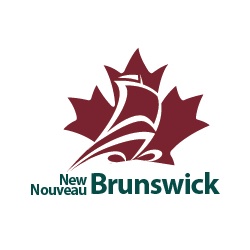
Open
Farm Land Identification Program (FLIP)
Last Update: March 3, 2026
NB, Canada
New Brunswick property tax deferral for farmland preservation
Tax Credits
At a glance
Funding available
Financing goals
No objectives are currently available
Eligible Funding
- No Condition
Timeline
- Open Date : July 9, 2024
Eligible candidates
Eligible Industries
- Agriculture, forestry, fishing and hunting
Location
- New Brunswick
Legal structures
- Financial cooperative
- Non-profit
- Public or Parapublic institution
- For-profit business
- Sole proprietorship
- Social economy enterprise
- Non-financial cooperative
Annual revenue
- All revenue ranges
Organisation size
- All organization sizes
Audience
- Rural or Northern Residents
Non-profit candidates
Sector of operation
- Environment
- Economic, Social and Community Development
Target groups
- Rural / Remote communities
- Business owners / entrepreneurs
Revenue structures
- All structures
Scope
- Provincial
Overview
Landowners are encouraged to preserve real property for agriculture through this program: 50% of the total taxes deferred on eligible farmland and outbuildings.
Activities funded
- Deferral of provincial property taxes on eligible farmland and farm outbuildings to preserve land for agricultural use.
- Long-term registration and maintenance of farmland for active or potential agricultural operations.
Examples of admissible projects:
$ 5,000
Create a permaculture garden on 15 acres of farmland
$ 7,500
Preserve 50 acres of farmland for community-supported agriculture
$ 5,000
Conserve 25 acres for educational farming programs
$ 7,500
Establish a community farm on 40 acres of preserved land
$ 7,500
Develop a sustainable farming initiative on 30 acres of land
$ 5,000
Convert 20 acres of farmland into organic agriculture
Eligibility
- The applicant must be the owner of real property.
- The property must meet the criteria established in the Farm Land Identification Program Regulation.
- The land must be in active use by an agricultural operation or be suitable for such use as defined in the relevant legislation.
- An application for registration must be submitted for consideration.
Who is eligible?
- Owners of agricultural land
- Operators of agricultural operations
Eligible expenses
- Deferral of provincial real property taxes on the assessed value of registered farmland and farm outbuildings.
- Deferral of the portion of the local or municipal tax rate that exceeds the average LSD rate for the province.
Eligible geographic areas
- Properties located in New Brunswick.
How to apply
1
Assess Eligibility
- Review the Farm Land Identification Program Regulation to ensure your property meets the eligibility criteria.
- Ensure your farmland is in active agricultural use or suitable for such use.
2
Gather Necessary Information
- Obtain the Property Account Number (PAN) for the land you wish to register.
- Prepare detailed information about your agricultural operation and how the land is used.
3
Complete Application Form
- Download or request the application form from the program's administrative office.
- Fill out all required fields accurately, providing comprehensive details about your property and agricultural activities.
4
Submit Application
Send the completed application form and all supporting documents to the Crop Sector Development Branch via email at DAAF-MAAP@gnb.ca or mail to 1350 Regent Street, Fredericton.
5
Application Review and Monitoring
- The department will evaluate your application to confirm eligibility.
- Ongoing eligibility will be monitored post-registration to ensure compliance with program criteria.
Additional information
- Deregistering or withdrawing from the program can result in the repayment of deferred taxes for up to 15 previous years, plus interest.
- The interest owed on deferred taxes upon deregistration or withdrawal after September 1, 2007, is capped at 50% of the total deferred taxes.
- Participants can request a statement detailing deferred taxes and interest for their registered property.
- Registration is considered a long-term commitment, and exiting the program may involve substantial financial costs.
Contacts
DAAF-MAAP@gnb.ca
1-800-669-7070
NB, Canada
Apply to this program
Frequently Asked Questions about the Farm Land Identification Program (FLIP) Program
Here are answers to the most common questions about the Farm Land Identification Program (FLIP). This section explains what the program is, how much funding is available, eligibility requirements, application deadlines, and other important details to help you determine if this grant is right for your business.
What is the Farm Land Identification Program (FLIP)?
Who is eligible for the Farm Land Identification Program (FLIP) program?
What expenses are eligible under Farm Land Identification Program (FLIP)?
Who can I contact for more information about the Farm Land Identification Program (FLIP)?
Where is the Farm Land Identification Program (FLIP) available?
Is the Farm Land Identification Program (FLIP) a grant, loan, or tax credit?
Who are the financial supporters of the Farm Land Identification Program (FLIP)?
Apply to this program
More programs like this

Grant and FundingOpen
Improving Crop and Livestock Health and Quality
Government of New Brunswick, Aquaculture and Fisheries (NB), Sustainable Canadian Agricultural Partnership (SCAP)
Funding to reduce pests and diseases in New Brunswick agriculture

Loans and Capital investmentsOpen
Agriculture Loan and Loan Guarantees
Financing to buy or develop New Brunswick farmland

Grant and FundingOpen
Wildlife Damage Compensation Program
Compensates New Brunswick producers for wildlife-related crop and livestock losses

Grant and FundingOpen
Agri-Industry Development & Advancement — Business Development (Agricultural Organizations and Associations)
Development funds for New Brunswick agri-industry groups

Grant and FundingOpen
Agri-Land Accessibility and Enhancement
Government of New Brunswick, Aquaculture and Fisheries (NB), Sustainable Canadian Agricultural Partnership (SCAP)
Funding for the development of farmland in New Brunswick


Grant and FundingOpen
Risk Management and Food Safety
Government of New Brunswick, Aquaculture and Fisheries (NB), Sustainable Canadian Agricultural Partnership (SCAP)
Funding for assurance systems in New Brunswick agriculture

Grant and FundingOpen
New Construction Commercial and Industrial Energy Efficiency Program
Supports energy-efficient commercial and industrial new building projects

Grant and FundingOpen
N.B. Indigenous Agriculture Development Program
Government of New Brunswick, Aquaculture and Fisheries (NB), Sustainable Canadian Agricultural Partnership (SCAP)
Funds for Indigenous agricultural businesses in NB

Loans and Capital investmentsOpen
Aquaculture Loans and Loan Guarantees
Financing for aquaculture activities in New Brunswick
Sign up to our platform to access the Farm Land Identification Program (FLIP) information sheet for free
Get access to 10,000+ programs, practical guides, personalized alerts, and an AI assistant to support your grant applications.